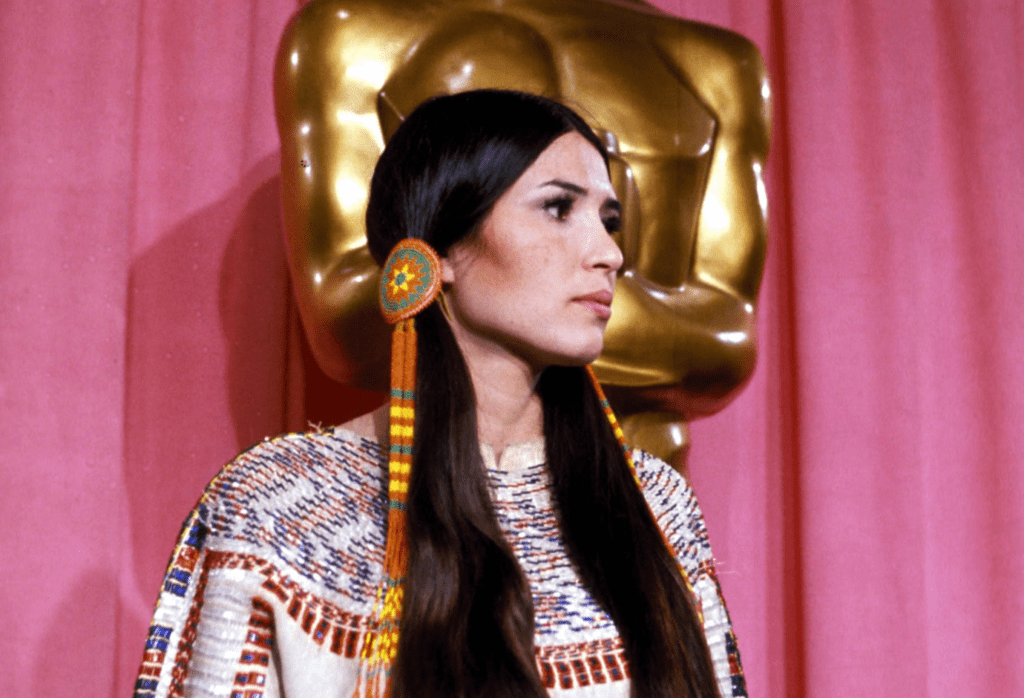Almost 50 years after her infamous Oscars speech, The Academy of Motion Picture Arts and Sciences has formally apologised to Sacheen Littlefeather for the discrimination and mistreatment she received.
The Apache and Yaqui actress and activist was the first Native American woman to take to the Academy Awards stage, after she was elected by Marlon Brando to accept his award for his role in The Godfather in 1973.
Brando did not attend that year’s Oscars in protest of the ways Hollywood depicted and treated Native American people. Onstage, Littlefeather, then 27, announced Brando would decline the award.
“I am representing Marlon Brando this evening and he has asked me to tell you…that he very regretfully cannot accept this very generous award,” she said.
“And the reasons for this being are the treatment of American Indians today by the film industry and on television in movie reruns, and also with recent happenings at Wounded Knee.”
“I beg at this time that I have not intruded upon this evening and that we will in the future, our hearts and our understandings will meet with love and generosity. Thank you on behalf of Marlon Brando.”
Littlefeather was met with both of jeers and applause, though afterwards, she regularly faced backlash and abuse.
In mid-June, Academy president David Rubin penned a formal apology to Littlefeather, where he called the abuse she’d suffered as “unwarranted and unjustified.”
“As you stood on the Oscars stage in 1973 to not accept the Oscar on behalf of Marlon Brando, in recognition of the misrepresentation and mistreatment of Native American people by the film industry, you made a powerful statement that continues to remind us of the necessity of respect and the importance of human dignity.”
“The emotional burden you have lived through and the cost to your own career in our industry are irreparable. For too long the courage you showed has been unacknowledged. For this, we offer both our deepest apologies and our sincere admiration.”
“We cannot realize the Academy’s mission to “inspire imagination and connect the world through cinema” without a commitment to facilitating the broadest representation and inclusion reflective of our diverse global population.”
“Today, nearly 50 years later, and with the guidance of the Academy’s Indigenous Alliance, we are firm in our commitment to ensuring indigenous voices—the original storytellers—are visible, respected contributors to the global film community. We are dedicated to fostering a more inclusive, respectful industry that leverages a balance of art and activism to be a driving force for progress.”
This week, the Academy revealed plans to host a live celebration program featuring Littlefeather, commemorating Native American Indian culture through “conversation, reflection, and healing” which will also including a formal apology from the Academy.
Littlefeather, 75, responded in a statement, saying she had never expected such a commemoration to take place.
“We Indians are very patient people – it’s only been 50 years,” she said. “We need to keep our sense of humour about this at all times. It’s our method of survival.”
“It is profoundly heartening to see how much has changed since I did not accept the Academy Award 50 years ago. I am so proud of each and every person who will appear on stage.”
The live event, An Evening with Sacheen Littlefeather will be held on September 17 at the Academy Museum in LA.


